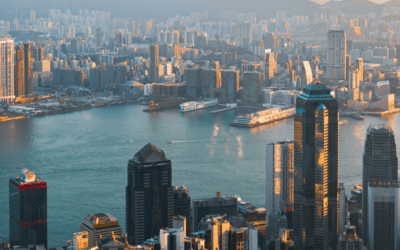There’s one recurring theme that we always hear from our audience who originates from legacy brand countries. It’s not to do with concerns about how their governments are raising taxes but more to do with how they’d love to live the Nomad Capitalist lifestyle but don’t think places that will treat you well exist.
In this article, we’re going to talk about the fallacy in that statement and we’re going to share a specific country example. Uruguay is opening its doors to ensure that you can go there and be treated best within its borders.
Nowadays, legacy brand countries such as the USA, the United Kingdom, and more around the European Union are raising taxes. Their government has been trying to handle the economic and tourism crash with this methodology.
However, the ones that are “suffering” aren’t the general public because most of these taxes are to be paid by those with an income of more than $500,000 to $1,000,000 per year.
Then again, a nation in South America is breaking barriers when it comes to handling its financial deficit. Uruguay is one of the most “silent” countries in the world, and most people might’ve not even heard of this place if they haven’t been in the region.
However, an article from Bloomberg that headlines “Uruguay Sidesteps Regional Tax Frenzy in Bid to Trim Deficit” talks about how this South American nation is trying to grow its economy without asking the general public for more money. If you’d like to learn more about living here, read our complete guide to the best cities to consider for living in Uruguay.
South America is Raising Taxes
You need not look further into most legacy brand countries to see how nations are trying to burden their people with ongoing tax hikes.
Argentina has been eyeing adding more taxes to the wealthy by passing what they call the “millionaire’s tax.” This is a tax that the Argentine government passed that aims those with assets that are more than $2,500,000 to be taxed heavily.
The government in Argentina claims that this tax will shoulder the economic burden that’s due to the current pandemic that the whole world is facing. However, what most people often neglect is the fact that these “millionaires” in the country are only 12,000 – it doesn’t make sense that these people shoulder the burden of more than 45,000,000 people.
In Colombia, the government’s bid to raise raising taxes ended up enraging the whole country. There had been mass protests in every major city like Bogotá, Medellín, and even the small towns in Cartagena.
So the question in everybody’s mouth is this: how can Uruguay stay neutral to its citizens without having to raise their taxes?
The United States Approach to Raising Taxes
In the United States, the government’s bid to raise taxes has continually been progressing.
President Joe Biden’s government aims to tax the rich to achieve their $3.5 trillion budget. Now, when you come to think of it, it does appear to be for a good cause. Unlike most countries whose cover says that they’ll “use it” for the pandemic, the United States aims to build more infrastructure that will benefit the general population.
President Biden wants to raise taxes on wealthy individuals and corporations to fund the administration’s projects on education, paid leave, childcare, health care, and climate initiatives. Surely, these projects sound like they’ll do the country good, right?
However, those who will be taxed for this are those individuals who earn $500,000 to $1,000,000 a year. That’s a tax hike from the previous 27% to an astounding 31%.
As a wealthy citizen, you’d probably be wondering why the government is taking your hard-earned money to pay for the expenses of others. Now, this is a valid question if you’ve ever found yourself asking this – will you actually benefit from these tax hikes, or are you basically a living and breathing charity?
The funny thing is that this administration has called for more of a third-party reporting to the IRS to make sure that each citizen or corporation that falls under that “wealthy” category wouldn’t be able to avoid paying their taxes in the country.
The United Kingdom’s Approach to Raising Taxes
Another legacy brand country that we can look at is none other than the United Kingdom.
Like its American cousin, the United Kingdom isn’t using the current global pandemic as a “front” so they can carry on raising their taxes. Sure, Prime Minister Boris Johnson’s government wants to clear the backlog that had built up during the pandemic, but the main reason for the tax hike is to increase the funding for their social care.
This came at a price when the country had been massively hit by the pandemic, with most of their health care workers at a disadvantage. Due to this, the government had announced that there would be a tax hike that’ll be shouldered by 25,000,000 people – the rich, basically.
In a land that seeps down in history, monarchy, and aristocracy, we’ll see how Britain’s rich and elite will react to this tax hike that’ll inevitably cap the costs for the country’s social care and add more funding to the National Health Service.
Now, unlike the United States, the tax hike in the United Kingdom is only 1% as per the recommendation of the Prime Minister’s Office. However, their Treasury is eyeing a higher tax rate of 1.25%.
Uruguay’s Approach to Trim its Deficits
Now, going back to Uruguay and its efforts to not raise taxes – don’t you think how it’s so odd that a tiny nation like this can “beat” its counterparts in most legacy brand countries? What’s their secret, and is it actually possible to not take taxes from the people?
Looking at “smaller” countries, there’s a bit of a technicality when it comes to trying and changing things.
Take a look at what happened in the Republic of Georgia – Former President Mikheil Saakashvili shared this sentiment when he said how hard and frustrating it was to turn a smaller country like Georgia into the economic and capitalist haven it is today.
Even a country like Portugal needs to fight harder to get more applicants for their Golden Visa Fund. They tend to have a reputation for being more nimble since they’re smaller, and they tend to want to attract more people even though they bring in the same benefits as their regional counterparts like Spain.
Will Uruguay Succeed?
Uruguay commits to trimming down its deficit to make sure that they get back on the right track economically. Instead of taxing the private sector or solely the rich, the country opted to tax their civil servants.
The country’s Finance Minister, Azucena Arbeleche, said that they wouldn’t slap tax hikes on the general population. The government wanted to fix its deficits before asking the public for more money – now, this is logical, don’t you think?
The sector that they’ll be taxing instead is the civil servants. President Luis Lacalle Pou added a temporary income tax on a small group of civil servants. This way, they’ll be able to redirect $660,000,000 in unnecessary spending to be able to fight the pandemic.
We don’t know about you, but there are still countries out there that heavily rely on wits and an innate ability to not raise taxes. Sure, it might be challenging to find these places – but let it be known that these places exist.
The challenge to those of you is to find a place where you won’t be taxed half of what you’re earning and to go where you’re treated best.
Check out this guide on how you can get a second residency or citizenship in Uruguay.









